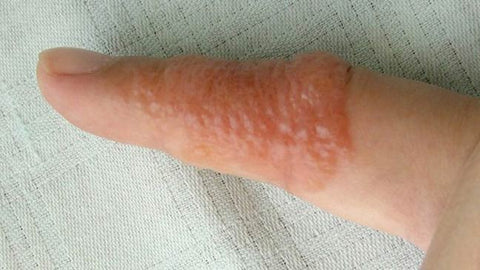Dyshidrotic eczema—also known as dyshidrosis or palmoplantar eczema—is a type of skin condition that manifests as small, fluid-filled blisters on the palms of the hands, fingers, and soles of the feet. These blisters are often incredibly itchy and can lead to peeling, cracking, and other complications. For those who suffer from this condition, flare-ups can be not only physically uncomfortable but also affect day-to-day tasks like walking or using their hands.

Understanding the symptoms, triggers, and treatment options is crucial for managing this condition effectively. This article will explore the various aspects of dyshidrotic eczema, including its potential causes, risk factors, treatments, and prevention strategies.
What Causes Dyshidrotic Eczema?
The exact cause of dyshidrotic eczema remains unknown, but certain factors are believed to trigger flare-ups. These can include:
- Sweating: One of the most common triggers, though experts are unsure exactly why. Excessive sweating may irritate the skin and prompt flare-ups.
- Allergies to metals: Hypersensitivity to metals such as nickel and cobalt is often a contributing factor. Individuals who work with these materials or are exposed to them in daily life may experience heightened symptoms.
- Personal care products: Certain ingredients found in soaps, moisturizers, or shampoos can irritate the skin, causing or worsening dyshidrotic eczema.
- Medications: Certain drugs, including birth control pills or aspirin, may contribute to flare-ups.
- Smoking: Exposure to tobacco, either by smoking or second-hand smoke, is linked to increased eczema symptoms.
- Stress: Emotional stress is another major trigger. People who experience high levels of stress may see an increase in the frequency or severity of dyshidrotic eczema outbreaks.
- Weather changes: Shifts in temperature, especially during warm, humid weather, can exacerbate symptoms.
While these are some of the most common triggers, dyshidrotic eczema can vary from person to person, and understanding individual triggers is key to managing the condition.

